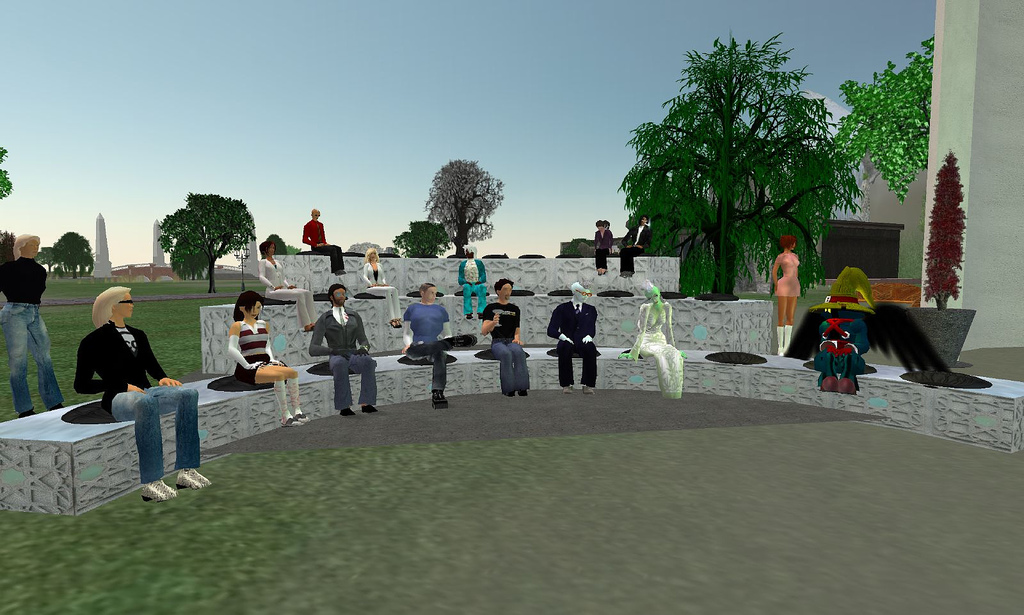All Day Twitter

Second Life. Image by John Lester
From The Baffler:
What is it about social media that’s so depressing? I’m asking for myself. And I mean beyond the obvious: that much of the imagery and information presented there accelerates suffering and despair; that many people who use it are themselves plainly, often explicitly miserable; that it distracts more sneakily and time-warpingly than any other distraction; that it makes you feel as if everyone is hanging out without you, demands you masochistically crave this feeling, and incites you to inspire it in others; that it gamifies already competitive social relationships and posts your score for the disedification of the viewing public; that all this is by design and in service of a goal so banal that it sparks few to anger—they don’t care about our souls or our ruthless private-messaged gossip, just our data, where we shop and what we buy and how old we are when we buy it. Though I understand the sweeping consequences of a monopolistic data marketplace in nefarious partnership with the security state—the companies have pictures of our faces and robots that can identify them!—like many I find it difficult to care, at least to the extent that caring means changing my life. I mainly wish I could get it back.
This is how I feel—wish I could get my life back—but it isn’t the right way to put it, though it was fleetingly cathartic to type it out. Do I mean I want to return to the life I had when I was fourteen, before I began to worry about MySpace Top 8s or the messages I convey with my profile pictures? Absolutely not. Do I mean I want to, as the post-digital digital gurus have it, “reclaim my time”? No. But both nostalgia and denial are useful if you want to feel better, fleetingly, about—to use a meme I would like if it wasn’t a meme, “*gestures vaguely around at*”—everything.
A refrain among my peers and colleagues—“what might I be doing if I weren’t looking at Twitter all day?”—presupposes that deep down we’re not really like this, that there’s some substrate of reality beneath this manic and useless activity, a noumenal world in which we accomplish tasks or experience leisure without tabbing over to our curated roster of news and opinion every five minutes. But the fact is you can look at Twitter and Instagram and, if you’re desperate, Facebook continually, one thousand times a day, and still get things done—there is no separate, more real reality.








